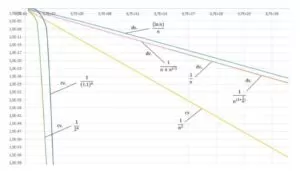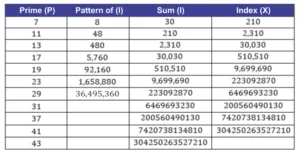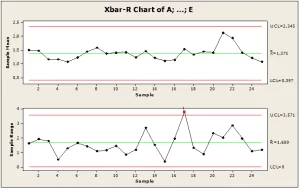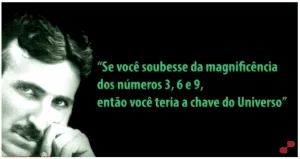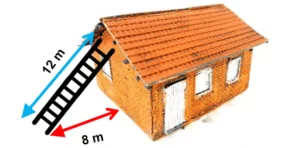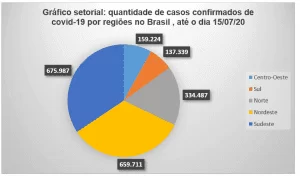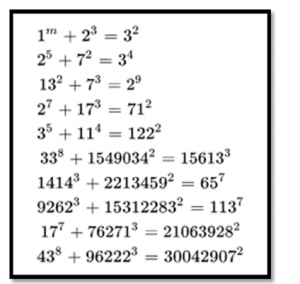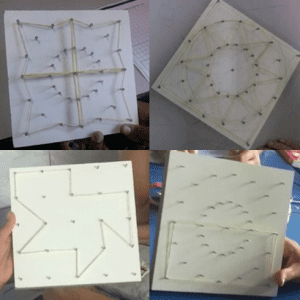ORIGINAL ARTICLE
FARIAS, Mirian Zuqueto [1]
FARIAS, Mirian Zuqueto. The games and their contribution in the learning of mathematics. Multidisciplinary Core scientific journal of knowledge. 04 year, Ed. 06, Vol. 05, pp. 82-95. June 2019. ISSN: 2448-0959
SUMMARY
The discipline of mathematics is seen by students in a fearful way, difficult to understand and that the contents are complex, contributing to the classes become uninteresting. According to this context, it is difficult to achieve the goals so desired in the classroom with the students, in the process of teaching and learning. The present work deals with the contributions of mathematical games in the learning of students of the sixth grade of Fundamental II, in a perspective of contributing to the improvement of pedagogical practices in mathematics classes. Because mathematical games are an alternative capable of providing learners with a more favorable and pleasurable environment to learn. The methodology is a bibliographic review, in which it will consist in the collection of references of authors who have done their research on the theme of the work cited above, journals, scientific articles and other materials of scientific characteristics. These data are used in the study in the form of citations, these data are used in the study in the form of citations, meaning of basis for the development of the researched subject. It is believed that the games are appropriate and palpable tools for mathematics education being of great importance in the learning of mathematics.
Keywords: mathematical games, learning theories, pedagogical practices.
1. INTRODUCTION
Much of the studies and researches carried out in the area of mathematics education presupposes that the use of games in mathematics classes presupposes a very appreciable change in the teaching and learning process, which allows changing the traditional education model in Teaching of mathematics, which often has in the textbook the standardized exercises, being its main and only pedagogical resource. Causing great disinterest on the part of the students in relation to discipline. It is known that teaching practices are different from school to school, even when it comes to disciplines considered universal, for example, mathematics.
The objective of this work is that the mathematical games will contribute to the improvement of the pedagogical practices of the teacher. The methodology used in this study is a bibliographic review, in which it will consist in the collection of references from authors who have done their research on the theme of the work cited above, magazines, scientific articles and other materials of Scientific characteristics. This information is used in the statement in the form of citations and also, meaning the basis for the increment of the researched subject.
The importance of researching this theme is justified because it is an interesting topic, especially in the area of mathematics. Because the games have an important contribution in advancing the teaching and learning process in the 6th year of the final series of the fundamental II, becoming relevant mainly for future educators of the area.
It is considered that the Games establish a form of meaningful learning, constituting a very attractive, engaging way that also provides benevolent learning situations instigating the students a different way of learning Mathematics favoring creativity, organizing methods, resolutions of problems and others. And the errors should be corrected in a natural way during the process or action, without leaving marks. Also remembering, that education by means of games has become, in the last decades, a highly commendable methodological alternative and can be applied in several respects.
2. THEORETICAL FOUNDATION
2.1 MATHEMATICAL LEARNING
According to Lara (2003), The mathematical word is of Greek origin and relates to "knowing, learning". The term Mathema temu m meaning "knowledge" and all models of understanding. It is mentioned that mathematics manifested itself in Mesopotamia, and in Egypt. It emerged as a matter for inter-relacionar-se with arithmetic and trigonometry, because from that context the mathematics began to engender in the life of the human being. For Aranão says:
The abstract numerical concept appears progressively in Mesopotamia and Egypt from the third millennium B.C.: Each number is associated with the unit system, the representation is created (' two ' of ' two sheep '). Therefore, the first writing systems emerged to meet the need to calculate, divide and share the material richness of society, that is, so that a society can create a writing, there must be material needs (ARANÃO, 2004. P 23).
Since Aranão (2004), recommends that it be given to the teaching and learning of mathematics, a relationship with the current facts and circumstances, therefore, one should not ignore the examples that everyday life lends to students and teachers, examples of these real and true.
Only thus, according to this author, the students can always be in tune with the facts and deeply motivated to the studies, especially if they correlate the quotidian with the contents, using the ludicity depending on the subject to be Addressed. (14)
It is of paramount importance to the professionals of mathematics education, to be attentive to what students learn, that is, that they are able to reason and interpret, that they are able to face the difficulties that are appearing at every moment. Games are also part of the list of activities that enable the creativity of students. Play or puzzle games are very useful. They provide different opportunities to value and stimulate mental reasoning and force the agility of thought (ARANÃO. 2004 p.12).
For mathematical learning to take effect, several mechanisms should be considered, the examples that students bring from their previous experiences cannot, nor should they be despised. They are always rich in variations and creative ways to apply content already studied. Then, learning mathematics at school represents continuing the process of constructing the logical-mathematical knowledge acquired early on (15).
Weisz (2000), in his book The Dialogue between teaching and learning, suggests to the teacher four relevant items, which according to the author, contributes for all students to learn, and should be considered in any disciplines at the time of distinguishing and planning Pleasant moments of learning, because in mathematical learning, especially when they are manipulating the games can not be different: according to Weisz (2000),
An activity is considered a good learning situation when: 1. Students need to put into play everything they know and think about the content around which the teacher organized the task; 2. Students have problems to be resolved and decisions to be taken in function of what they propose to produce; 3. The worked content maintains its characteristics of real sociocultural object; 4. The organization of the task ensures the maximum circulation of information possible among students, so the proposed situations must predict the exchange, the interaction between them. (2000 apud. Brasília/MEC, 2001, p.158)
This only happens when the teacher reflects on his pedagogical practice and proposes different classes in the classroom, but with the aim of improving his pedagogical practice and seeking the improvement of his profession.
2.2 THE GAMES IN MATHEMATICS EDUCATION
In his etymology, the word game comes from jocu, a noun that means joke. As perceived, it denotes fun, hobby with rules that must be respected. It can be considered a metaphor of life, because it involves maneuvers, oscillation, balance, among other situations that are present in real life (ANTUNES, 2002).
For D'ambrósio, according to his studies and research emphasizing discussions of the traditional teaching of mathematics, won several national and international awards and having a contribution of mathematics education. In his book Mathematics Education-from theory to practice in the year 1996, comes to emphasize a new paradigm of education, innovations and reflections on teaching practice to mathematics education and learning.
For D'ambrósio (1996),
But undoubtedly the rational, that is, what has been learned in the courses, is incorporated into the teaching practice. And as we exercise it, the criticism about it, merged with observations and theoretical reflections, will give us elements to improve it (D'ambrósio 1996, p. 91).
According to Araújo (1992, p. 64), "Gambling is a spontaneous and disinterested activity, admitting a freely chosen rule, which must be observed, or a deliberately established obstacle, which must be overcome". Thus, the game, while presupposing freedom of action, needs to be aimed at overcoming the obstacles that are interposed in the context.
At that moment, she uses the game not only as a representation of what she lived, but a unique experience.
Kishimoto (2006) collaborates with this reflection when it points out that the game, for children, has an end in itself, does not aim at a final result. What matters to the child who plays (plays) is the act of the fun itself, not the acquisition of knowledge nor the development of any skill.
Smole (2007) recalls that, the use of games at school is not something new, just as it is well known its potential for teaching and learning in many areas of knowledge. Thus, it recommends that,
The work with games is one of the resources that favors the development of language, different processes of reasoning and interaction among students, since during a game each player has the possibility to accompany the work of all others, defend Points of view and learn to be critical and confident in yourself (SMOLE. 2007, p.1).
Thus, it can be considered that games when used in the school context can be transformed into very rich resources that will support the work of the educator.
Lara (2003, p. 21), warns educators that if the teaching of mathematics is considered by them, as a process that contributes to the development of logical reasoning, stimulate independent thinking, develop creativity, the ability to manage Real situations and solve different types of problems, surely, it is to seek alternative strategies to work mathematics in school.
Among the didactic resources cited in the National curricular parameters (PCN) stand out the ' ' Games ' '. According to BRAZIL, Volume 3, there is no single and better way to teach mathematics, however, knowing several possibilities of working in the classroom is essential for the teacher to build his practice.
According to Lara (2003), what is known is that the games have lately been gaining space in schools in an attempt to bring the ludic into the classroom. The pretension of most teachers, with their use, is to make the lessons more enjoyable in order to make learning become something fascinating.
In addition, recreational activities can be considered as a strategy that stimulates the reasoning leading the student to face conflicting situations related to his/her daily life and, also, the use of the Games is corroborating the formative value of Mathematics, not only in the sense of assisting in the structuring of thought and deductive reasoning, but also of assisting in the acquisition of attitudes.
Guzmán (1986), expresses very well the meaning that this activity has in mathematics education: the interest of the Games in education is not only fun, but rather to extract from this activity enough materials to generate knowledge, interest and make the Students to think with a certain motivation.
In this way, it is believed that through the games, it is possible to develop in the student, besides mathematical skills, his concentration, his curiosity, the group consciousness, the collectiveness, the companionship, his self-confidence and his self-esteem.
The use of recreational activities in mathematics classes, in addition to the cognitive aspects relevant to its application, should not ignore or disregard the affective aspect, triggered by the action of the game, in the approximation of the players. This occurrence is verified by the teachings of Piaget (1966-1974) and punctuated by Brenelli (1991, p 23) as "… In all human conduct, the cognitive aspect is inseparable from the affective aspect, understood as the energy of the action that permeates motivation, interest and desire. "
For Moura (1994), the game allows the approximation of the subject to the scientific content, through language, information, cultural meanings, comprehension of rules, imitation, as well as the ludicity inherent in the game itself, thus ensuring the Construction of more elaborate knowledge.
For Kishimoto (2004),
The use of the game potentializes the exploration and construction of knowledge, due to the internal motivation, typical of the playful, but the pedagogical work requires the offer of external stimuli and the influence of partners as well as the systematization of concepts in Other situations than games. By using, in a metaphorical way, the playful form (object play support) to stimulate the construction of knowledge, the educational toy conquered a definitive space in early childhood education (KISHIMOTO 2004, p. 43).
For MOURA (APUD) Kishimoto (1993[…]) "The child, teenager seeks the game as a necessity and not as distraction[…]. It is by the game that the child and the teenager reveal themselves. " From there it is perceived that both the child and the adolescent need to play and if this play is opportunized in the classroom, making the relationship between the content that must be developed and how to be learned, assimilated and constructed by the student, has Greater probability that learning will be more satisfying and pleasurable for the learner. The educator, in turn, will have a more attractive way of presenting the contents.
According to the national Curriculum parameters of Mathematics (1997)
A relevant aspect in the Games in mathematics classes is the genuine challenge they provoke in the student, which generates interest and pleasure. Therefore, it is important that the games are part of the school culture, and the teacher is responsible for analyzing and evaluating the educational potentiality of the different games and the curricular aspect that is to be developed (BRASIL, 1997,48-49).
It is understood, therefore, that learning should happen in an interesting, pleasurable and meaningful way, a resource that enables this, according to the references above, are the games.
Regina Célia Grando in her master's thesis at UNICAMP, on the study of the "game and its methodological possibilities in the teaching-learning process", emphasizes the methodological role of the game in the teaching and learning process of mathematics, in which This study was very relevant to Brazil and other countries under a critical view of the problem of teaching mathematics in the classroom context, in Brazil today. For Grando says:
When we refer to the use of games in mathematics classes as methodological support, we consider it to be useful at all levels of education. The important thing is that the objectives with the game are clear, the methodology to be used is appropriate to the level that is working and, mainly, that represents a challenging activity for the student to trigger the process (GRANDO 2008, p 25).
Thus, many of the contents worked in mathematics in elementary school, for example, are not exactly news for children. They already have some idea about them, grounded in common sense. “… It is important to emphasize that mathematics should be seen by the educating as a knowledge that can favor the development of his reasoning, his expressive capacity, his aesthetic sensibility and his imagination "(PCN ´ S 1998).
In his doctoral thesis in the year 2000, he has emphasized an investigation through a field research to rescue skills and skills in teaching and learning mathematics, because the teacher's pedagogical practice will be perfecting when he appropriates Of the Mathematical Games in the Act of teaching and the objectives of her research are:
-
-
- To investigate the possibilities of the development of pedagogical work, based on games and problem solving;
- To highlight the process of constructing procedures and concepts, by the subjects, from the pedagogical interventions performed in the environment of the mathematics classroom;
- To analyze the methodological aspects of the work with the Games in the Teaching of Mathematics (GRANDO 2000, p. 61).
-
His research case study with 08 students of the 6th grade, which is today 7th year of a school in Campinas São Paulo, they were evaluated by Piagetian methods, which concluded that the mathematical games have the function of contributing in the meditation of the pedagogical practice of Teacher in his pedagogical practice, breaking paradigms and that it is possible through mathematical games to happen a meaningful learning, attractive, entertaining in the involvement of students in the activities of mathematical games.
3. THE CONCEPTIONS OF PIAGET AND VYGOTSKY IN THE LEARNING OF MATHEMATICS
Jean William Fritz Piaget, born in Neuchâtel-Geneva, August 09, 1896 and died in 1980. I was a biologist and a psychologist. He founded the genetic epistemology, which means how the process of acquiring knowledge and the development of intelligence happens. He conducted empirical studies on child thought and logical reasoning, in which he was scientifically proven through his experiments, that the child builds his own knowledge and has his own way of reasoning. Also, for Piaget (1978), Mathematical logical thinking is a change in the child's psychic function about the environment in which it is inserted, since it considers two ways of understanding the experiences linked to the actions, as follows:
1. Physical experiments: Includes the manipulation of the subject with the object. example, comparison and colors, and others…
2. Mathematical logical experiments: there is only information based on its own actions, the relationships it establishes when the subject acts on the object. The action on the object is indispensable for understanding. For the action is decisive so that there is a learning, in which the learner can reflect on what has led to act through a certain problem. To better understand le studied on the stages of developments:
- MOTTOR SENSORY PERIOD-from birth to 02 years.
2. OPERATIVE PERIOD-Two stages
2.1. PREOPERATIVE-from 02 to 07 years of life.
2.2. CONCRETE OPERATIVE-from 07 to 12 years of life.
3. FORMAL SURGERY-from 12 years onwards.
In the first stage, the child is characterized by the egocentrism of thought. In the second stage, the child is able to perform certain reversibility operations, which is the ability that the child must be able to solve problems of conservation of quantities. According to PIAGET (1973),
The initial role of concrete mathematical logical actions and experiments is precisely the preparation necessary to get to the development of deductive spirit, and this for two reasons. The first is that the mental or intellectual operations that intervene in these later deductions derive precisely from the actions: internalized actions, and when this internalization, together with the coordinators that assume, are sufficient, the logical experiences Mathematics as material actions are already useless and the inner deduction will suffice itself. The second reason is that the coordination of actions and experiences
Logical mathematics give way, by internalizing itself, to a particular type of abstraction that precisely corresponds to the logical and Mathematical abstraction (PIAGET 1973, p. 57).
This means that the child has the ability to perceive the conservation of a quantity such as: Mass, volume, area, numbers that characterize the objects and usually develop from 06 to 07 years of life.
Already for for Lev Semyonovich Vygotsky, psychologist, who was born in 1896 in Mosco una Russia and died in 1934, and his work was all about thought and language, in which, are two relevant principles in the association of the Child with the Games: the precepts and the Conjuncture Imaginary that they symbolizate.
As for the precepts, the author highlights, that later the lack of following rules, adapt to them and have concussions with their inherent culture (because what is consented in a disfado in some place may not be granted in another), the compliance is something that was " Combined "before the game began. The imaginary condition that the games favor, according to Vigotsky, forces the child to find answers to what he experiences. Learning situations should prioritize activities that allow students to bring their experiences and their spontaneous knowledge, mediating game activities, which occurs by mediation of an adult in the child's potential development zone. For Vygotsky (1991),
The proximal development zone is characterized by the distance between the actual (child) level of development determined by problem solving independently and the level of potential development determined by the resolution of problems under the Orientation of adults or in collaboration with more skilled companions (VYGOTSKY 1991, P. 97).
For Vygotsky, the games have a great influence on the positive aspect in the child's learning, because the recreational activities have a very significant function for the child's cognathic, social and amorable progress by increasing the development zone Proximal, allowing the child to implement skills and a set of socially knowledges that begin to be internalized.
In this area, the child handles the game not exclusively as an act of what he lived, but a unique learning. For Vygotsky, Ludicity has a social role to the child's alacrity, conceiving a knowledge of his experience, to recreate the world through imagination.
4. FINAL CONSIDERATIONS
To the development of this work, it was evidenced that the games when the teacher himself, the students, cease to be recipients of the teacher's explanations and start to have a more active action in the progress of elaboration of mathematical concepts, since Often the acquisition of knowledge succeeds from the elucubrations that the student elaborates. In this idealization, the teacher has a primordial role, because it is the one who determines the pedagogical procedures that are crucial for the development of the teaching and learning process, avoiding that the activities approach the "game by Game".
Further, the teacher must be vigilant in the clearance of the game and also be able to deal with the benefits and harm that they find evident in the games. InCube the teacher to fade and find out that the student takes the most advantage of this type of activity, because the main goal is that the learner has a meaningful learning in his process, developing his skills and skills in the classroom in a Teaching Unit. The game has a great contribution to the improvement of the pedagogical practice of the teacher and a meaningful learning in the comprehension of the contents in the discipline of mathematics.
To conclude it is important to remember that we are in the sumity of scientific and technological evolution and, in accordance with the apex of the dissatisfaction of our students. Thus, according to the profession that the teacher distends is manumitir the willingness to learn and, more exclusively in studying mathematics. It is inconceivable that we continue to accept that a student who can, perfectly, give change, take care of his "allowance" or buy a "ranch" within his budget – I mean children, teenagers and adults – cannot solve problems involving Mathematical concepts. Because the applicability of the game, bringing Peripecias from the context of the student, come to benefit all its range of knowledge that was built outside the school and often, is disregarded in the classroom.
It is also intended that, through this analysis and execution of games presented involving some content studied in elementary school II, those involved perceive the found benefits and objectives achieved during its execution and the efficacy of Use of games in the discipline of mathematics. It is believed that the use of games is intended to make students enjoy learning mathematics. In classes with games, students become active elements of their learning process, experiencing the structuring of knowledge and failing to be a mere passive listener to be a thinking and active individual in the teaching and learning process.
It is believed that the games are admissible and touchable instruments for mathematics education being of great usefulness in the day to day school. Today we must give the real importance to the playful, because it is a permanent necessity of any person at any age, and that can not be seen only as fun. For US educators The ludicity have another vision, in addition to what it represents for most people, we have as a source of learning.
Given this situation, we hope that this study contributes in a qualitative way to subsidize the teaching work of professionals who believe in the change of educational quality, especially with regard to mathematics education.
5. References
AMBROSIO, Ubiratan. Educação Matemática da teoria a prática. 12.ed. Campinas: Papirus, 1996.
ARAÚJO, Vânia Carvalho de. O jogo no contexto da educação psicomotora. São Paulo: Cortez, 1992.
ARANÃO, Ivana V. D. A matemática através de brincadeiras e jogos. 5. ed. Campinas: Papirus, 2004.
AZEVEDO, M.V. R. Jogando e Construindo Matemática: a influência dos jogos e materiais pedagógicos na construção dos conceitos em Matemática. São Paulo: Editora Unidas, 1993.
BORIN, J. Jogos e resolução de problemas: uma estratégia para as aulas de matemática. São Paulo: IME-USP;1996.
BRASIL. Secretaria da Educação Fundamental. Parâmetros Curriculares Nacionais: Matemática – Brasília: MEC / SEF, 1998.
BRASIL. Ministério da Educação e do Desporto. Parâmetros curriculares brasileiros. Brasília, 1999.
CAILLOIS, R. Os jogos e os homens: a máscara e a vertigem. Lisboa: Edições Cotovia, 1990, tradução: José Garcez Palha.
CENTURIÓN, M. et al. Jogos, Projetos e Oficinas para educação Infantil. São Paulo: FTD, 2004.
GRANDO, R. C. A construção do conceito matemático no jogo. (Texto fotocopiado), s/d.
_______________O jogo e suas possibilidades metodológicas no processo ensino/aprendizagem da Matemática. Campinas: FE/UNICAMP. Dissertação de Mestrado, 1995.
_______________O jogo e a Matemática no Contexto em Sala de Aula. São Paulo: Paulus. 2ªEd., 2008.
GROENWALD, Claudia L. O.; TIMM, Úrsula Tatiana. Utilizando curiosidades e jogos >matemáticos em sala de aula. Disponível em: http://www.somatematematica.com.brAcesso: fev/2002
HUIZINGA, J. Homo Ludens: o jogo como elemento da cultura. São Paulo: Ed. Perspectiva, 2ª edição, 1990, tradução: João Paulo Monteiro.
KAMII, Constance ; DECLARK, Georgia. Reinventando a aritmética: implicações da teoria de Piaget. São Paulo, Campinas: Papirus, 1992
_______________. – Aritmética: Novas Perspectivas. Implicações da Teoria de Piaget. Papirus Editora, 2001.
KISHIMOTO citado por LUCENA, Ferreira De. Jogos e brincadeiras na Educação Infantil. Campinas: Papirus, 2004.
LARA, Isabel Cristina M. Jogando com a matemática de 5ª a 8ª série. São Paulo: Editora Rêspel, 2003.
MACEDO, L.; PETTY, A. L. S. e PASSOS, N. C. 4 cores, senha e dominó: oficina de jogos em uma perspectiva construtivista e psicopedagógica. São Paulo: Casa do Psicólogo, 1997.
MATOS, J. M. e SERRAZINA, M. de L. Didática da Matemática: Recursos na aula de Matemática. Lisboa: Universidade Aberta, 1996.
MOURA, M. O. de. A construção do signo numérico em situação de ensino. São Paulo: USP, 1991.
_________________. A Séria Busca no Jogo: do Lúdico na Matemática. In A Educação Matemática em Revista. São Paulo: SBEM-SP, 1994, p.17-24.
SILVA, Mônica. Jogos Educativos. Campinas: Papirus, 2004.
STAREPRAVO. A.R. Jogando com a matemática: números e operações. Curitiba: Aymará, 2009
Piaget, J. (1982). O Nascimento da Inteligência na Criança, 4ª edição, Rio de Janeiro: Zahar.
SMOLE. K. S.Jogos matemáticos de 1º ao 5º ano. Porto Alegre. Artemd. 2007
MICHAELIS. Jogo. Disponível em: http://michaelis.uol.com.br/moderno/portugues/index. php?lingua=portugues-ortugues&palavra=jogo>.Acesso em: 4 ago. 2010.
PIAGET, J. Comments in Mathematical Education, em A. G. Howson (ed) Proceedings of the Second, 1973b.
Programa de Formação de Alfabetizadores. Brasília: MEC.2001 São Paulo (Estado). Secretaria da Educação. Ler e escrever guia de planejamento e orientações didáticas professor alfabetizador: 1° ano. 2 ed. São Paulo: FDE, 2012
TOLEDO. M.M. Teoria e prática de matemática. São Paulo: FTD, 2009
TELMA Weisz In.O diálogo entre o ensino e aprendizagem. São Paulo, Ática, 2000.
VYGOTSKY, L. S. A Formação Social da Mente. 4.Ed. tradução de José Cipolla Neto e outros. São Paulo: Martins Fontes, 1991.
[1] Graduated in mathematics-UVA and pedagogy-FAIARA, post-graduation in management, supervision and school guidance-UNISONO, specialist in mathematics education-FAFAP, early childhood education and literacy-FIB, institutional psychopedagogy-BARÃO DE MAUÁ-SP, MSc in Education Sciences-USM and PhD student in Education Sciences-UNR.
Posted: March, 2019.
Approved: June, 2019.

